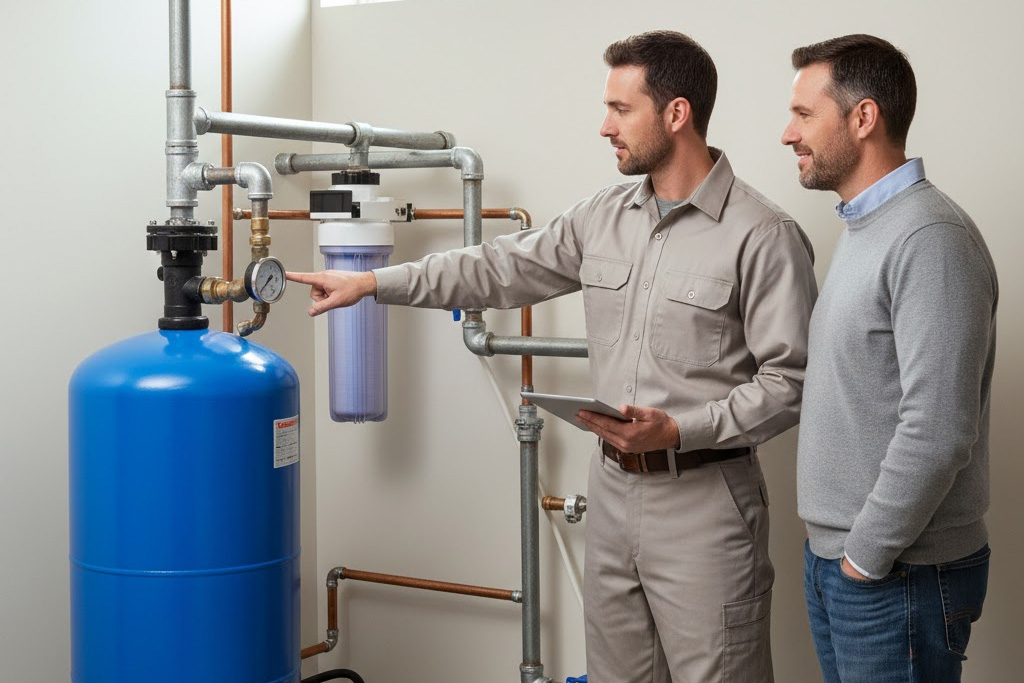When it comes to the water flowing through your home, not all sources are created equal. Many homeowners in rural and suburban areas rely on private wells, while others connect to municipal water systems. Both options have unique advantages and challenges—especially when it comes to plumbing performance, drilling and pump systems, and ongoing maintenance. Understanding these differences can help you make the best choice for your household’s comfort and long-term budget.

Municipal Water: A Convenient Advantage
Municipal water is managed by local utilities that handle water collection, treatment, and distribution. Homeowners simply connect to the system and pay a regular fee based on usage. The setup is straightforward and typically provides consistent water pressure and predictable service. Municipal water is treated to meet safety standards, which helps reduce contaminants and bacteria. However, some people find that the chemicals used for treatment—such as chlorine and fluoride—affect taste and may contribute to minor corrosion inside older plumbing systems.
Well Water: Completely Controlled by You
Well water operates quite differently. Instead of relying on a city or county system, homeowners draw water directly from underground aquifers through a private well. This approach eliminates monthly water bills, but it requires a substantial initial investment in drilling, casing, and installing a pump. The exact cost depends on local geology, depth, and accessibility. A well system also includes pressure tanks and other equipment that rely on electricity to deliver water to the home. If the pump fails or power is lost, the water supply can be temporarily interrupted.
A Cost Analysis
From a plumbing standpoint, well systems can present more challenges over time. Because well water often contains higher mineral content, calcium and magnesium can build up inside pipes and fixtures, creating hard water problems. This can shorten the lifespan of water heaters, dishwashers, and faucets if not properly treated. Homeowners with wells frequently install water softeners or filtration systems to protect their plumbing and improve taste and odor. In contrast, municipal water usually arrives softer and cleaner, though it may leave behind mineral traces or a slight chemical taste depending on the treatment process.
Maintenance responsibilities also differ significantly between the two systems. Municipal water users rarely handle any maintenance beyond occasional plumbing repairs, since the utility manages infrastructure, testing, and quality control. However, when problems occur—such as main breaks or boil advisories—residents have little control over the situation. Well owners, on the other hand, enjoy more independence and can monitor their water supply directly, but they are responsible for regular testing, pump upkeep, and ensuring the well remains sanitary. Pumps, tanks, and pressure switches may require periodic replacement to maintain proper performance.
The Verdict
Ultimately, both well and municipal water systems can provide safe, reliable water when properly maintained. The right choice depends on your location, budget, and comfort level with maintenance responsibilities. Municipal systems offer convenience and oversight, while private wells deliver self-sufficiency and potential savings over time—if managed carefully.
Because well water quality and pump performance can vary greatly by region, it’s always wise to schedule an assessment by a licensed well-drilling and pump service professional. A qualified expert can evaluate your system, recommend improvements, and help ensure your home’s water remains clean, dependable, and efficient for years to come.
Schedule an initial assessment with A&B Well Drilling & Pump Service. We make well water work for you!
